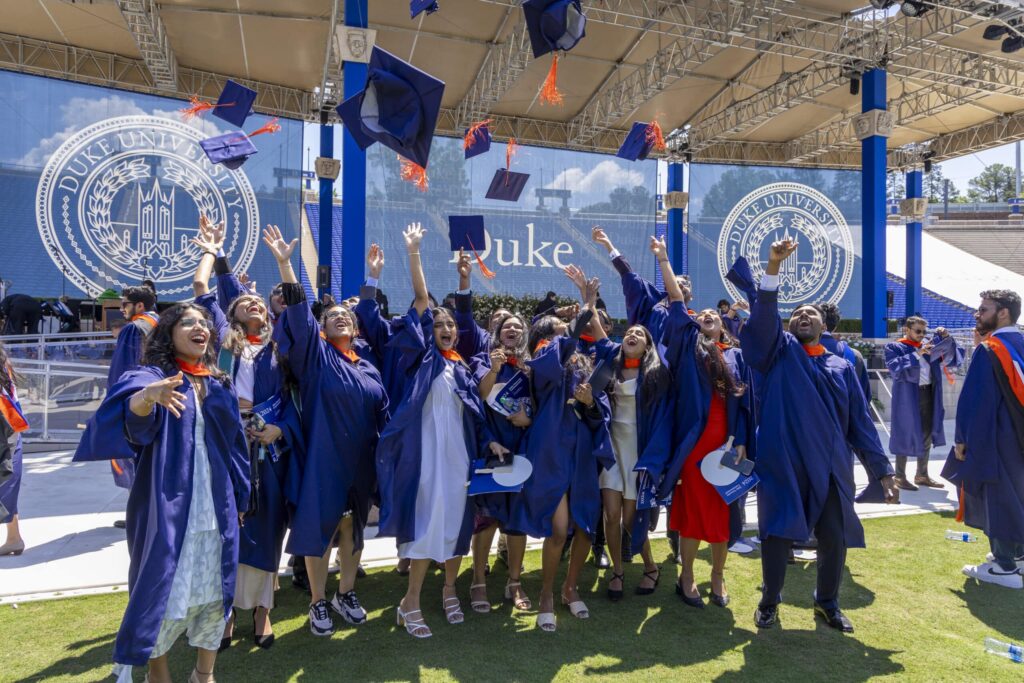
Launching a More Meaningful Model for Undergraduate Advising
Through interest‑based matching, curriculum orientation and an AI‑supported advising system, MEMS is redefining how undergraduates and faculty engage with each other.
After four years with us, you’ll have learned a lot. How to work in diverse teams. How to apply technical know-how. How to succeed after failure. But perhaps most importantly, you’ll have discovered a lot about your purpose. That means that most likely you know where they’re heading after graduation, well before you cross the stage to shake hands with the dean.

Average salary for our alumni, 0-5 years after graduation

Through interest‑based matching, curriculum orientation and an AI‑supported advising system, MEMS is redefining how undergraduates and faculty engage with each other.

Successful PhD graduates from Duke Engineering share their experiences and advice for starting a company during doctoral studies.

A team of undergrads took on the challenge of designing a responsive CPR training manikin for their MEMS senior design capstone.
We expect that, a few years after graduation, graduates of our program will be on track to become leaders in corporate, professional, and academic communities.
Duke’s Mechanical Engineering program is accredited by the Engineering Accreditation Commission of ABET, under the commission’s General Criteria and Program Criteria for Mechanical and Similarly Named Engineering Programs.
Our goal is to graduate mechanical engineers who embody excellence in a broad sense. We expect our graduates to advance within industry positions or in graduate study, or to carry the attributes of an engineering education into other disciplines.
The mechanical engineering program of study must include mathematics and basic sciences, fundamentals and applications in several engineering sciences, and team-based experience in the process of design, where theory is applied in the context of real needs and limitations, and where judgment must be exercised.
Our mechanical engineering graduates should be able to think critically when solving problems and managing tasks and communicate effectively in multi-disciplinary professional environments.
To be a responsible member of the engineering profession, each graduate must be aware of social, ethical, environmental and economic factors and constraints on engineering activity, and must understand the importance of these matters in a global context. We aspire to have our graduates exhibit intellectual depth and creativity, uphold high ethical standards, and show a commitment to the betterment of society through service and professional work.
Our specific Program Educational Objectives are to prepare our graduates to:
Our students will have the following capabilities upon completion of their degrees:
| Academic Year | Enrollment | Degrees Awarded |
|---|---|---|
| 2024 | 270 | 75⬩ |
| 2023 | 259 | 73 |
| 2022 | 160 | 79 |
| 2021 | 181 | 90 |
| 2020 | 183 | 90 |
Fall semester enrollment. Degrees awarded are a grand total for the academic year, first major only. More data is available through the Office of the University Registrar.